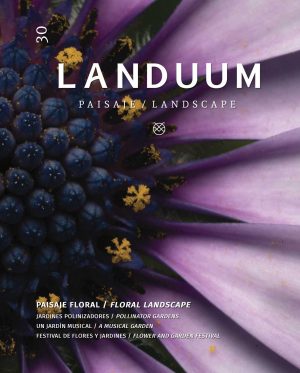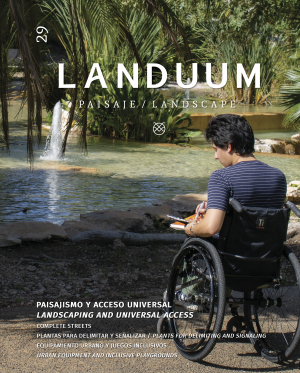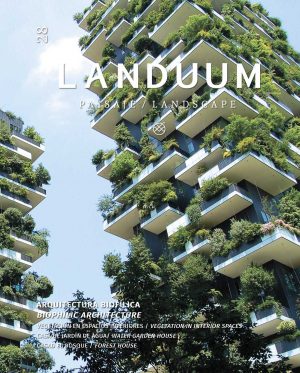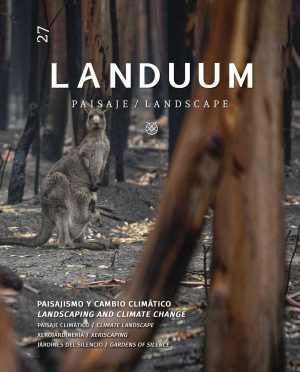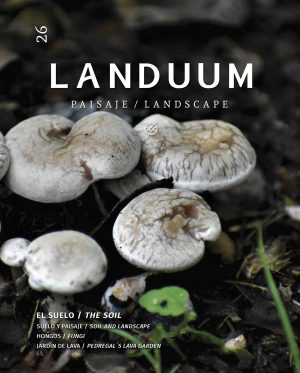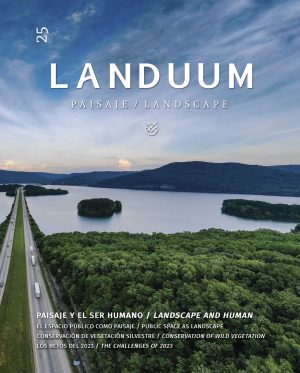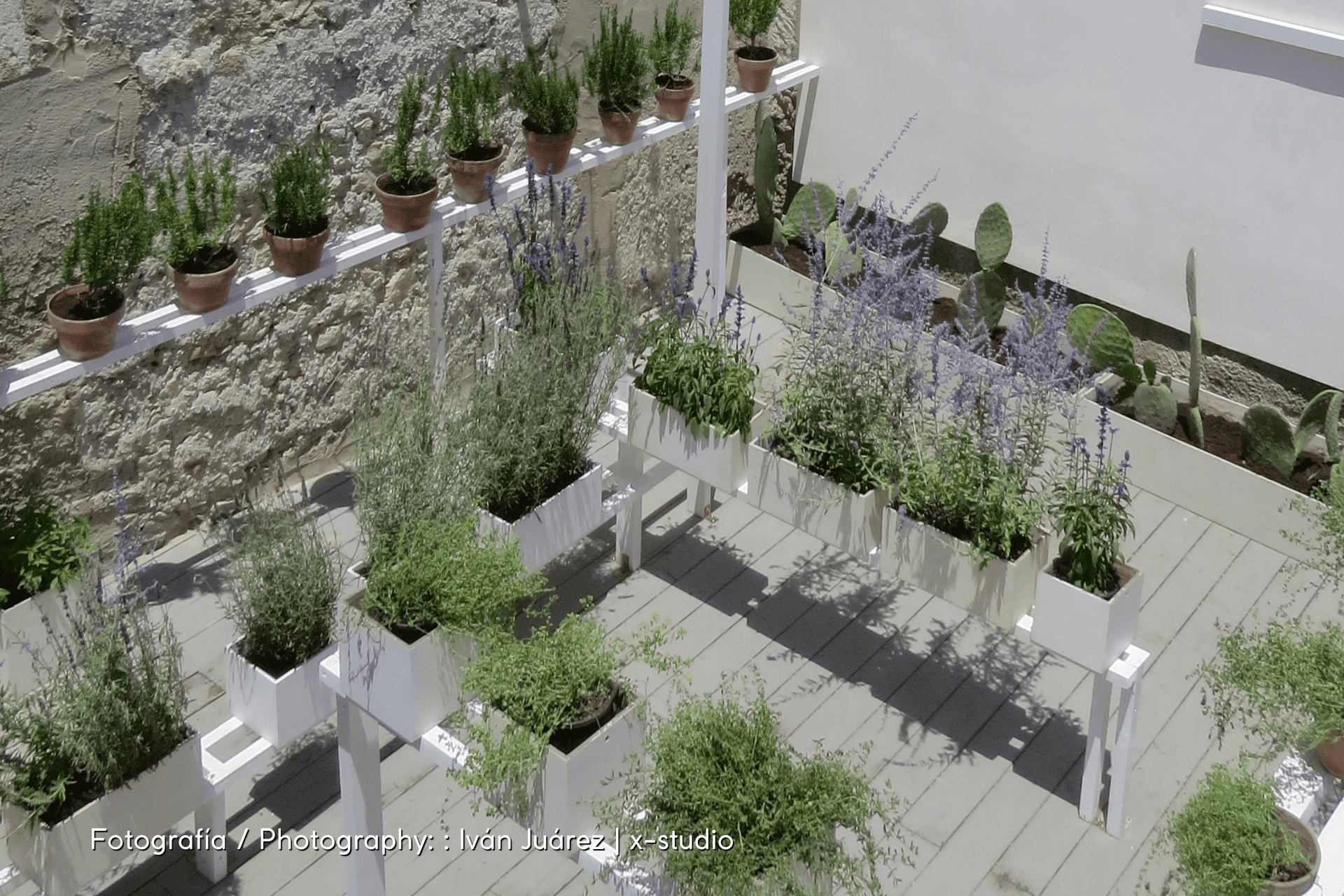
Aromatic garden and pollinator space
Traverses with Iván Juárez an Aromatic garden and pollinator space in Italy, that arises from the recovery of an unused patio-terrace.
Conceived as a tribute to the Mediterranean landscape, the architect and landscaper Iván Juárez from x-studio has created a site-specific intervention of urban acupuncture in a public space of Farm Cultural Park, a cultural complex located in the -Sette Cortili- neighborhood in the town of Favara, Sicily.
Farm Cultural Park is a community model that in recent years has positively transformed the urban and social tissue through a series of artistic and educational strategies.
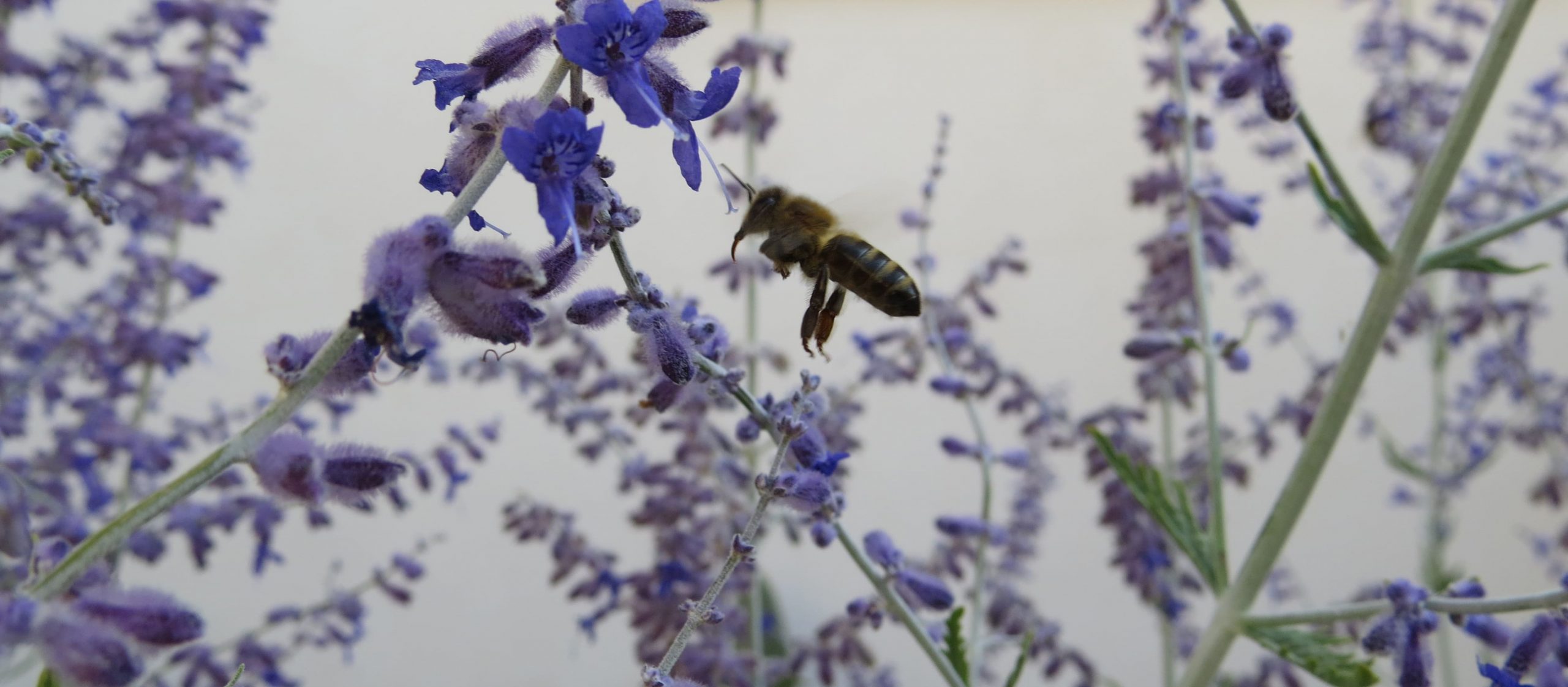
Bee pollinating.
Photography: Iván Juárez | x-studio
The neighborhood has been revitalized through the restoration of its architectural spaces and common areas, integrating artistic and cultural projects that generate a weave where the inhabitants coexist among terraces, patios, squares and gardens, along with public art works, murals, exhibition and educational spaces such as the School of Architecture for children (SOU).
“The neighborhood has been revitalized through the restoration of its architectural spaces and common areas.”
The project establishes a dialog with the context where the natural and cultural landscape of Sicily as well as the historic context of Favara, have provided the reference framework for developing the proposal. This intervention pays tribute to the Mediterranean landscape through an olfactory and pollinator garden where various fragrances of aromatic species are activated.
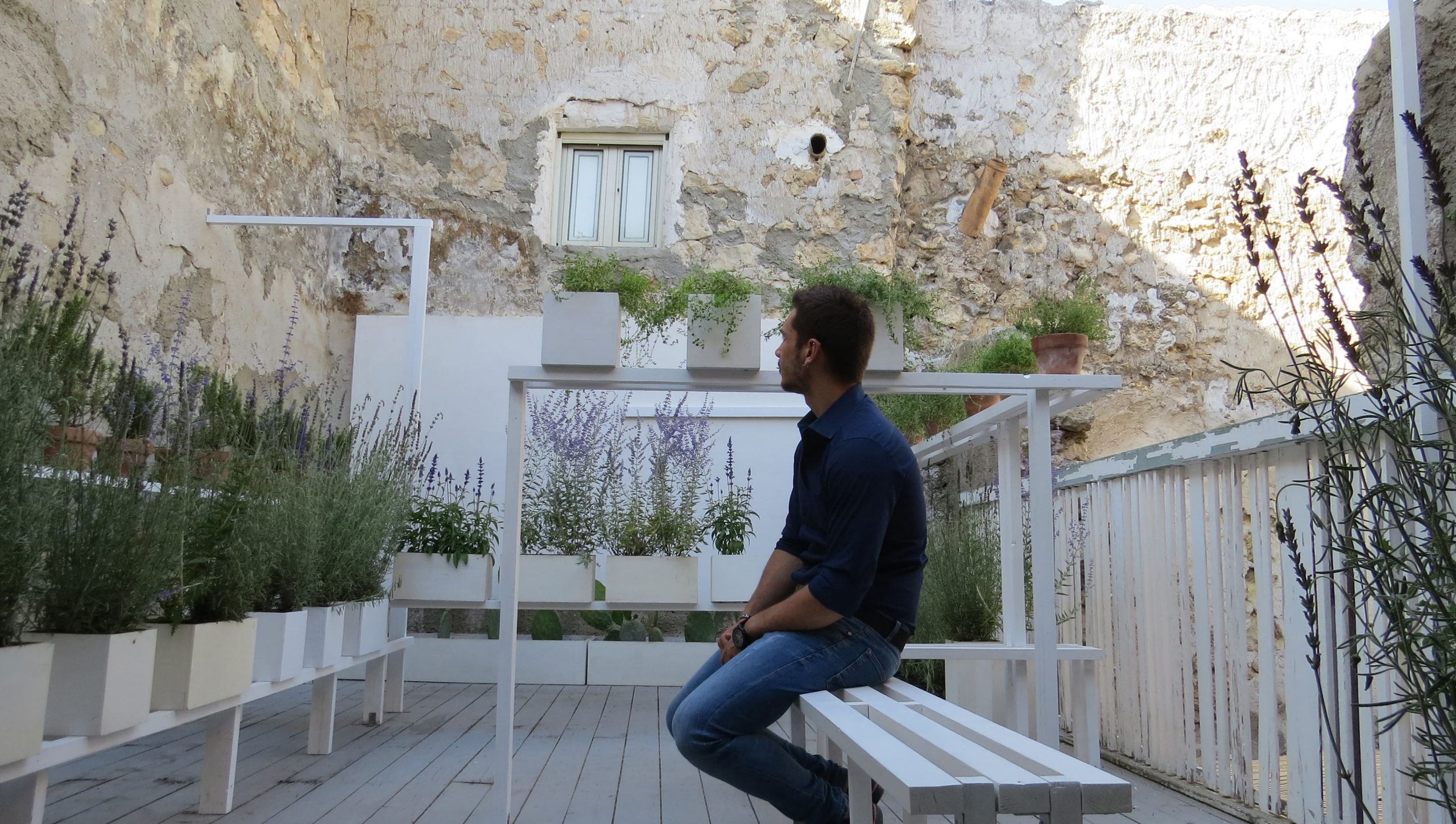
Enjoying the garden.
Photography: Iván Juárez | x-studio
“The intervention pays tribute to the Mediterranean landscape through an olfactory and pollinator garden where various fragrances of aromatic species are activated.”
The proposal arises from the recovery of an unused patio-terrace, transforming it into an olfactory space where various fragrances of Mediterranean aromatic plants blend: lavender, thyme, rosemary, sage, mint, among others.
Natural fragrances that attract various species of bees, butterflies, and other insects, generating new forms of coexistence with the natural environment, while activating sensory experience and olfactory memory.
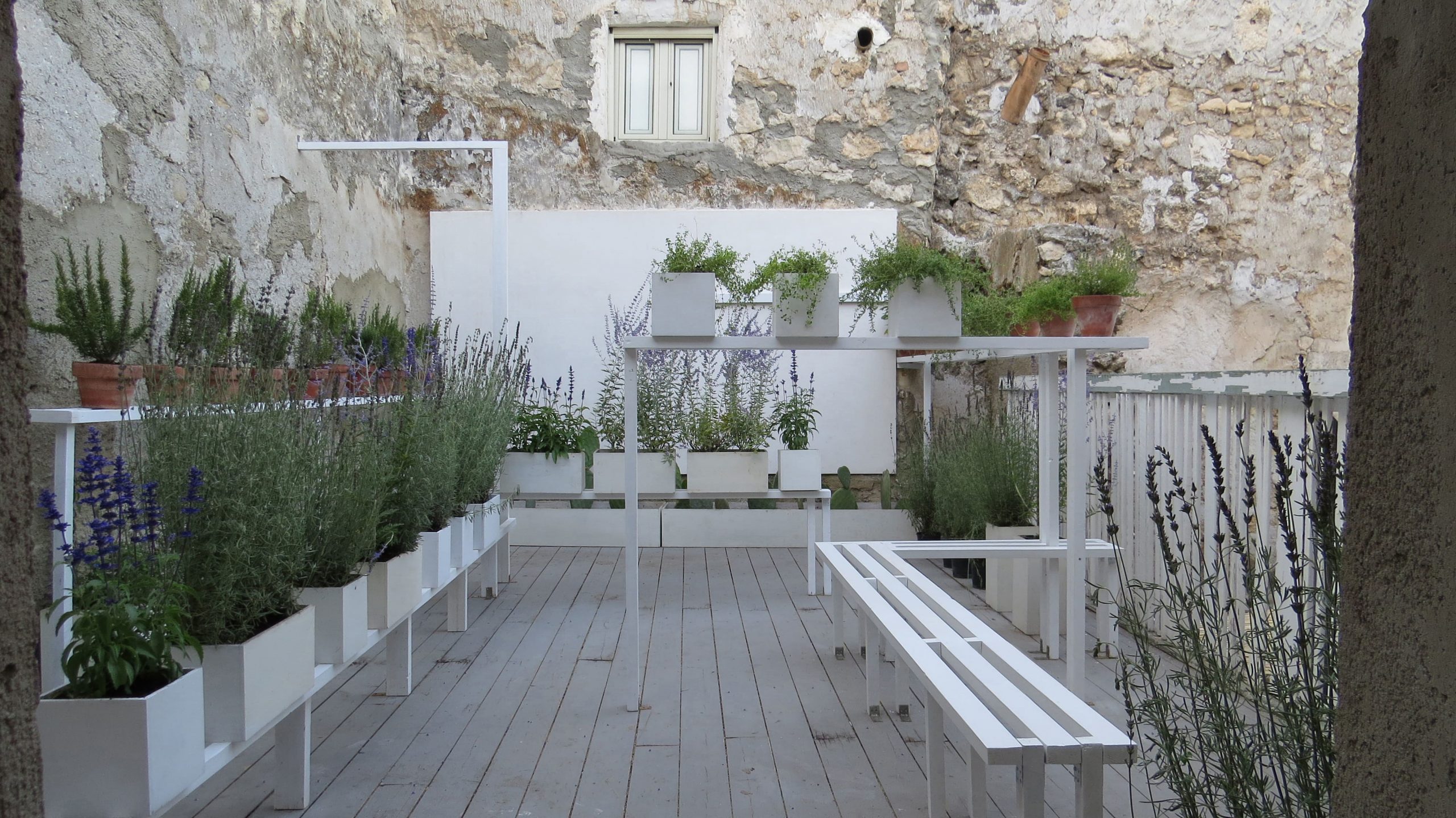
Spectator’s view.
Photography: Iván Juárez | x-studio
An approach to the local context is proposed through a living-space that offers diverse experiences and creates connections between the community and its own landscape. It serves as a place for contemplation and exploration.
Similarly, the project is articulated by a system of lines (reclaimed wood), which functions as a guiding thread that interweaves the space throughout its journey. The system creates diverse layers, heights, and settings, generating a sequence of micro-landscapes that, as they are traversed, reveal various textures, ranges, sounds, and aromas.
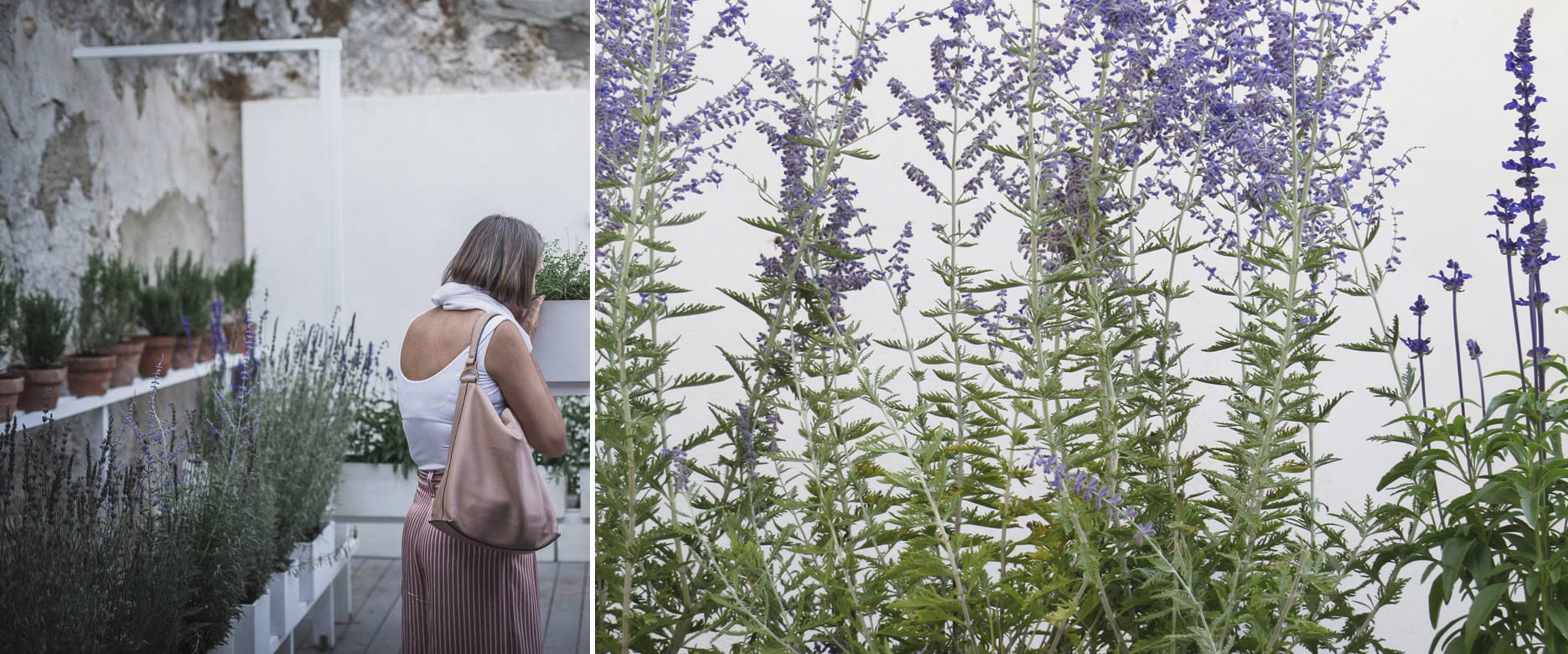
Walking through the garden.
Photography: Iván Juárez | x-studio



